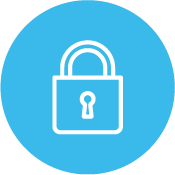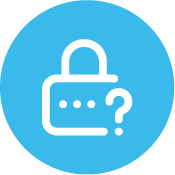
The last ten years have seen a rise in the number of employees working remotely by a fifth. With technology evolving, staff no longer need to be in the office in order to access files or the various tools needed to work productively. Studies have shown that remote working is a positive approach, with 82 percent of those working from home experiencing lesser stress levels, and 80 percent noting higher levels of motivation.
A prominent deterrent for many companies implementing remote working is cybersecurity. Data may be more susceptible to hacking when being accessed remotely. However, by mirroring the same protection protocols remotely as you do in the workplace, this can be mitigated.
-
Here are five top tips to improve security when working remotely:
-

LIMIT PUBLIC WIFI
Public WIFI is vulnerable to cyber-attacks, so employees should be advised to refrain from using it for company work. The short amount of time it takes to log in to the VPN is all a hacker would need to infiltrate and cause damage.
-

UP-TO-DATE SECURITY
Employees should have security software already installed on their laptops. Ensure that they run any updates when asked to do so, otherwise, said software is rendered incompetent and helpless against seasoned cyber attackers.
Components such as antivirus, device encryption, firewalls, and web filtering, should be installed on their laptops to increase security, just as it would be on in-office desktops.
-

LOCK AND HIDE DEVICES
Employees should be reminded to keep their allocated devices in their line of sight at all times. The device should be locked when not in direct use for a short period and stowed away during long periods of inactivity.
Stolen devices are the most convenient route for cyber criminals gaining access to your company’s systems and reaching sensitive data which could be worth millions. As such, they should be treated like the most valuable item in your possession.
-

INSPECT YOUR EMAILS
Some of the most frequent attacks are email impersonation attacks. Remote workers may rely on email for communication with other employees or clients. This increases risks as the user is more likely to accidentally open a fraudulent email that resembles a legitimate email they were expecting. Any potential attack should be reported to IT services for review.
Companies should already have alerted staff towards ways to spot a fake email during or after their induction period. Such measures include:
Never give personal information or login details in response to an email request. This is how a phishing attack leads to business email compromise.
Don’t click on links in email from sources you do not know; they may lead to malicious websites.
-

STRONG PASSWORDS
Simply put, the stronger your password is, the lower the chance of getting hacked. In the past, the general advice was to create long passwords with a mixture of upper and lower-case letters, numbers, and characters, but these are fast becoming hacker-friendly.
Choosing a vague password with a combination of random words is now recommended, as well as using two-step authentication, and not auto-saving passwords.
The benefits of introducing remote working to your business far outweigh the potential drawbacks. Keeping cyber protection at an optimum level should be the case for both in-house and remote devices, when that’s ensured, the threat of cyber attackers are greatly minimised.
Contact Centerprise International to find out how we can use our vast IT portfolio to provide tailor-made solutions that aid your mobile working security!




